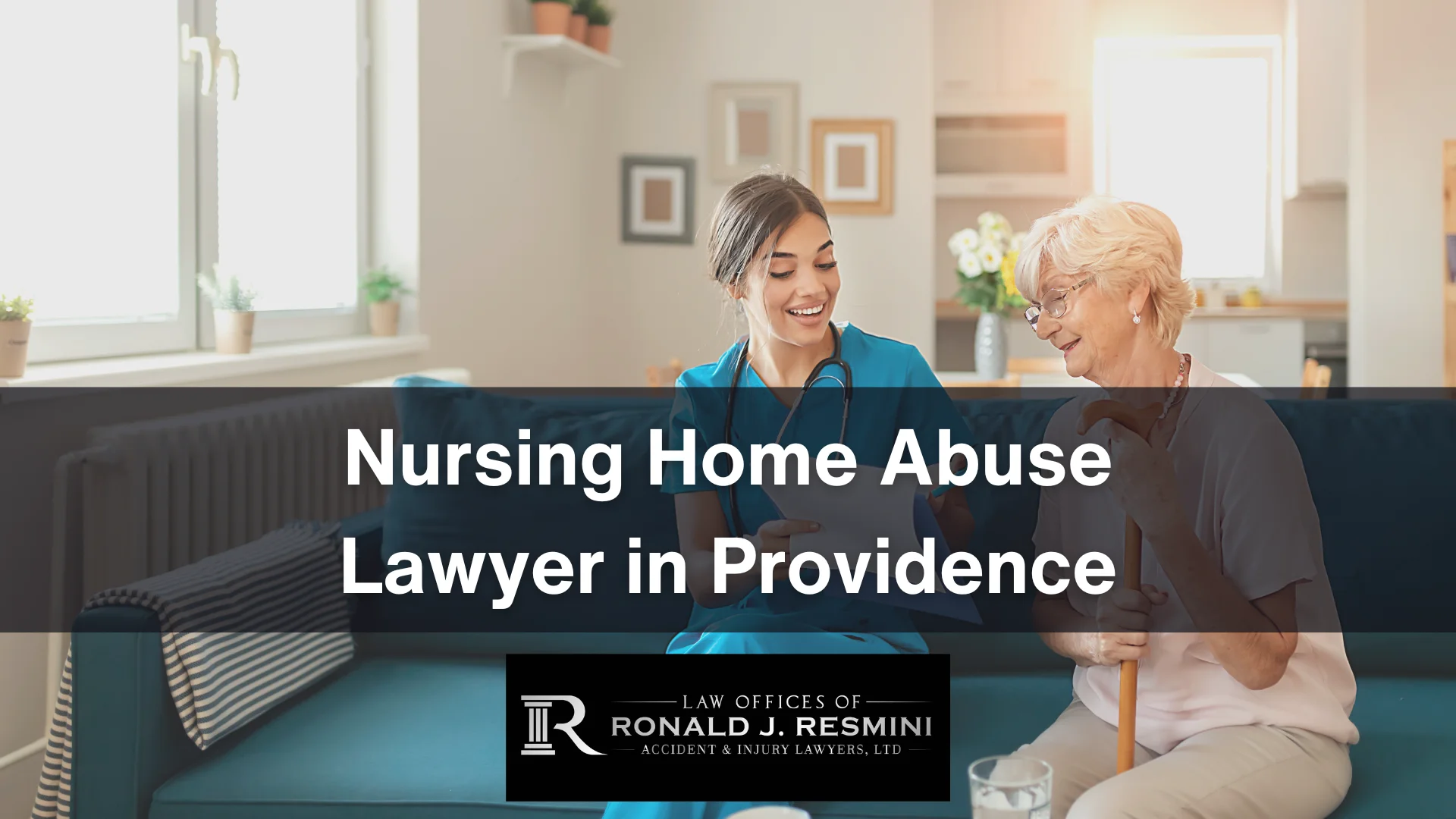 When an elderly person is ill and no longer able to live independently, many families must rely on professional caregivers in assisted living facilities or nursing homes. Turning to strangers to care for a loved one is a difficult decision for most families, but it is often a decision made necessary by the economic realities of our society, in which the adults in a household usually work outside the home to make ends meet. Finding a home that will consistently provide quality care while respecting the dignity of the residents is often a daunting task. And it is not always easy to tell what is happening when no visitors are present. Many facilities providing care for the elderly have problems, which often result from short staffing and other cost-cutting measures in for-profit homes. As a result, neglect and abuse in institutionalized elder care has reached near-epidemic proportions.
When an elderly person is ill and no longer able to live independently, many families must rely on professional caregivers in assisted living facilities or nursing homes. Turning to strangers to care for a loved one is a difficult decision for most families, but it is often a decision made necessary by the economic realities of our society, in which the adults in a household usually work outside the home to make ends meet. Finding a home that will consistently provide quality care while respecting the dignity of the residents is often a daunting task. And it is not always easy to tell what is happening when no visitors are present. Many facilities providing care for the elderly have problems, which often result from short staffing and other cost-cutting measures in for-profit homes. As a result, neglect and abuse in institutionalized elder care has reached near-epidemic proportions.
Nursing Home Abuse and Neglect Statistics
If you have a relative or a friend living in a nursing home, these are some statistics that you should be aware of:
- Thirty-six percent of U.S. nursing homes have been found to be in violation of elderly abuse laws
- Ninety-one percent of nursing homes lack sufficient staff to properly care for their patients (National Center on Elder Abuse)
- One survey of nursing home care staff revealed that more than half of the respondents admitted to mistreating their patients at least once during the prior twelve month period, including emotional abuse, physical abuse, and neglect.
- The actual number of incidents of elder abuse can be assumed to be significantly higher than even these shocking numbers suggest. One study estimated that one in fourteen cases is reported. Another study estimated that figure at only one in twenty-four.
The NCEA reports that the risk of death is three times as high when a patient is being abused. Additional consequences include increases in heart problems, psychological disturbance, high blood pressure, chronic pain, bone and joint problems, and digestive disturbances
Types of Elder Abuse in Care Facilities
Abuse in nursing homes may be physical, emotional/ psychological, sexual, or financial.
- Physical abuse is the most common form of nursing home abuse. Physical abuse may include slapping, punching, kicking, shoving, rough handling, as well as using of unnecessary drugs or restraints as a means of controlling the patient.
- Emotional or psychological abuse occurs when patients are humiliated, threatened, degraded, or ridiculed, causing depression, anxiety, and fearfulness. It may take the form of verbal abuse, ignoring requests for needed assistance, or forcing the patient to remain in isolation for extended periods.
- Financial abuse occurs when caregivers abuse their position of trust to gain access to a patient’s money, often by gaining access to a patient’s bank accounts or ATM card, or by using undue influence to pressure the patient to alter his or her will.
- Health insurance fraud is another type of financial abuse common in nursing homes. While on the surface this may appear as being detrimental only to the insurance company, in fact, it can damage the health of a patient when a nursing homes charge an insurance company for services, medication, or types of specialized care that the patient needs, and then fails to provide the paid-for service, to the detriment of the patient’s health.
- Sexual abuse is any non-consensual sexually-based interactions with a patient, who is often physically unable to resist. It may include unwanted touching or penetration, using sexual language, forcing the patient to look at pornography or to remove their clothing without a legitimate reason
Federal Legislation Regulating Nursing Home Care
The Nursing Home Reform Act (NHRA) is a piece of federal legislation that articulates the rights of nursing home patients and specifies required standards of care, addressing issues of nutrition, the use of restraints, and prevention and treatment of bed sores. It applies to all nursing facilities receiving Medicare or Medicaid funds. However, the NHRA has not eliminated neglect and abuse, and does not provide a provision for suing a facility. But it does attempt to establish legal minimum standards of treatment and makes it clear that nursing facilities have a legal responsibility to provide their patients with quality care.
If you discover that a loved one has been neglected or abused in a Rhode Island nursing home or assisted living facility, you should hire an experienced Providence nursing home abuse attorney to investigate the case and determine if there are legal grounds to recover monetary compensation for the physical or psychological damage that the abuse or neglect has caused.
How to Detect Possible Problems in a Nursing Home
If you have had to place a member of your family in a nursing home, you owe it to your loved one to be vigilant about the quality of care. Drop in unexpectedly. If anything seems other than it should be, question the staff or management. Observe whether the home appears to be clean and secure. Notice if caregivers appear to be stressed, fatigued, or overworked. Observe the patient for these potential red flags:
- Bed sores, rashes, or skin eruptions
- Hunger or thirst
- Noticeable weight loss or gaunt appearance
- Bruises or welts
- Lack of personal hygiene
- Unexplained injuries
- Anxiety, fearfulness, lack of affect
What to Do if You See Signs of Abuse
 Inform Senior Protective Services and call a Providence personal injury lawyer from the Resmini law offices. Your loved one is vulnerable and in need of protection. The Resmini attorneys are committed to the dignity and well being of our senior citizens. With more than forty years of legal experience, the highest possible rating by peers, and a long track record of successfully recovering money for the injured, we are equipped in every way to do right by your elderly family member or friend. Call (401) 751-8855 today for a free consultation.
Inform Senior Protective Services and call a Providence personal injury lawyer from the Resmini law offices. Your loved one is vulnerable and in need of protection. The Resmini attorneys are committed to the dignity and well being of our senior citizens. With more than forty years of legal experience, the highest possible rating by peers, and a long track record of successfully recovering money for the injured, we are equipped in every way to do right by your elderly family member or friend. Call (401) 751-8855 today for a free consultation.
Nursing Home Abuse FAQs
Why are nursing home abuse and neglect so common?
Nursing homes provide a unique environment that is, unfortunately, very susceptible to abuse and neglect. Nursing homes across the country face a problem with inadequate staffing and training. Many of the individuals who work in nursing homes are under-qualified for the job or have a history of violent behavior. Additionally, many nursing home residents are physically or mentally disabled, leaving them susceptible to and unable to prevent abusive treatment. This problem is only worsened when friends and family visit infrequently, leaving the residents without a trusted source of help and support. While many nursing homes have worked extensively to improve the environment and staff, this is a difficult task that requires more progress.
What rights do nursing home residents have?
Nursing homes have a duty to protect their residents’ rights, through ensuring their well-being and emphasizing dignity and self-determination whenever possible. All nursing home residents that participate in the Medicare program have the right to live free of verbal, physical, sexual, and mental abuse. Additionally, any restraints, whether physical or chemical, in the form of sedatives, must only be used under doctor order. Nursing home staff do not have the right to restrain residents merely for convenience. These laws are clearly stated and protected under Medicare, however, individuals not covered by Medicare are still protected by state laws. The type and extent of the protections, however, may vary from state to state.
What happens when a resident reports nursing home abuse?
Many nursing home residents do not report abuse or neglect out of fear of repercussions for their abuser or the nursing home itself. However, steps are in place to help protect residents when they have reported abuse. Once an allegation has been reported, an investigation will begin with the resident, their family members, and nursing home staff. If the allegations are found to be true, adult protective services will enter the nursing home and put in place protection to prevent the incident from reoccurring, such as firing the employee charged, reorganizing nursing home staff, and removing the resident from harmful situations. However, if families are not satisfied with the state’s remedy for the situation, they may choose to proceed with additional legal action.
